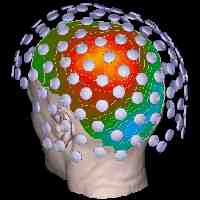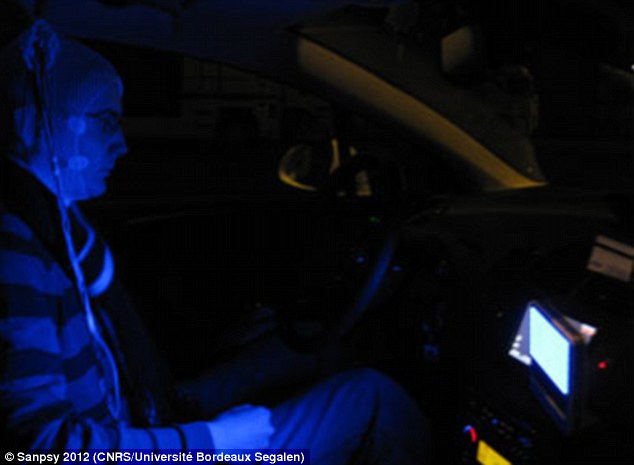Dr. Lulu L. Fitri: The Effect of Light Colours to Human Behavior
By Neli Syahida
Editor Neli Syahida

 BANDUNG, itb.ac.id - The greatness of human brain ability is still mysterious, even to scientists. Human brain will affect all of human activities. Being a part of living things, human will perform responses by thinking. This process involve brain. This response can be seen as behavior. Behavior is a representation of human physiology in response to stimulus. Besides that, hormon also has an important role in regulating behavior.
BANDUNG, itb.ac.id - The greatness of human brain ability is still mysterious, even to scientists. Human brain will affect all of human activities. Being a part of living things, human will perform responses by thinking. This process involve brain. This response can be seen as behavior. Behavior is a representation of human physiology in response to stimulus. Besides that, hormon also has an important role in regulating behavior.Study about behavior is explained broadly in Neurobiology and Endocrinology science. Neurobiology is branch of Biology which study physiology of nervous system and relation of its to behavior. Endocrinology is also branch of Biology study about endocrine system, whose product is hormone. These two science are taught in School of Life Science and Technology (SITH) ITB.
Lulu is a lecturer in SITH ITB with specialize in behavior biology. She also participate actively in physiology, animal development, and biomedical science research. Together with her students, Lulu perform research about behaviorology from neurobiology and endogcrinology point of view. Unfortunately, research to human objects isn't easy to be performed.
For scientist, studying human brain physiologically is not allowed directly. Therefore, it is usually used anmial model. But, sometimes animal model can't produce the same result to human. Nevertheless, scientist are still able to reveal molecular and cellular mechanism using animal model. To obtain physiological information, chemical molecules in nervous system (neurochemistry) are measured. It is done by measuring the amount of neurotransmitter and certain hormones in brain.
 In human, physiological assessment is performed from outer. One of them is brain wave measurement. From it, it will be obtained information about stimulus caught by brain through special senses, which then will be manifested through behavior. Assessment of brain wave is performed by brain imaging method. Lulu usually use electroencephalography to image brain wave, which is widely used in ITB after Dr. Suprijanto ST.,MT. introduced its to ITB.
In human, physiological assessment is performed from outer. One of them is brain wave measurement. From it, it will be obtained information about stimulus caught by brain through special senses, which then will be manifested through behavior. Assessment of brain wave is performed by brain imaging method. Lulu usually use electroencephalography to image brain wave, which is widely used in ITB after Dr. Suprijanto ST.,MT. introduced its to ITB.
Alertness Increase to Blue Light
Recently, many research conclude that blue light, whose wavelength is relatively short, can regulate behavior and emotion to human. But, in Indonesia, this related research isn't common. Lulu pioneered a research about it in Indonesia, titled by "The evaluation of Alertness and Reaction Time of Driver to Blue Light Exposure Through Brain Wave Response".
 She assess reflex performed by drivers when they are driving. "The result showed that blue light increase alertness for driver," Lulu said. Moreover, this increase is just limited to first 5-8 minutes. Therefore, the next research has to be performed so that this increase will be long last.
She assess reflex performed by drivers when they are driving. "The result showed that blue light increase alertness for driver," Lulu said. Moreover, this increase is just limited to first 5-8 minutes. Therefore, the next research has to be performed so that this increase will be long last.
Colour Meaning
Scientist has performed research to various colour. One of its application is on traffic light. Red is psychologically a sign of caution. It is commonly used for stop sign. It is supported by evidence that red light exposure will increase reaction significantly. Green light will stimulate calmness. In traffic light it is used to signify to go. It is intended to decrease stress causes by red light exposure.

.jpg)

.jpg)
.jpg)
.jpg)

